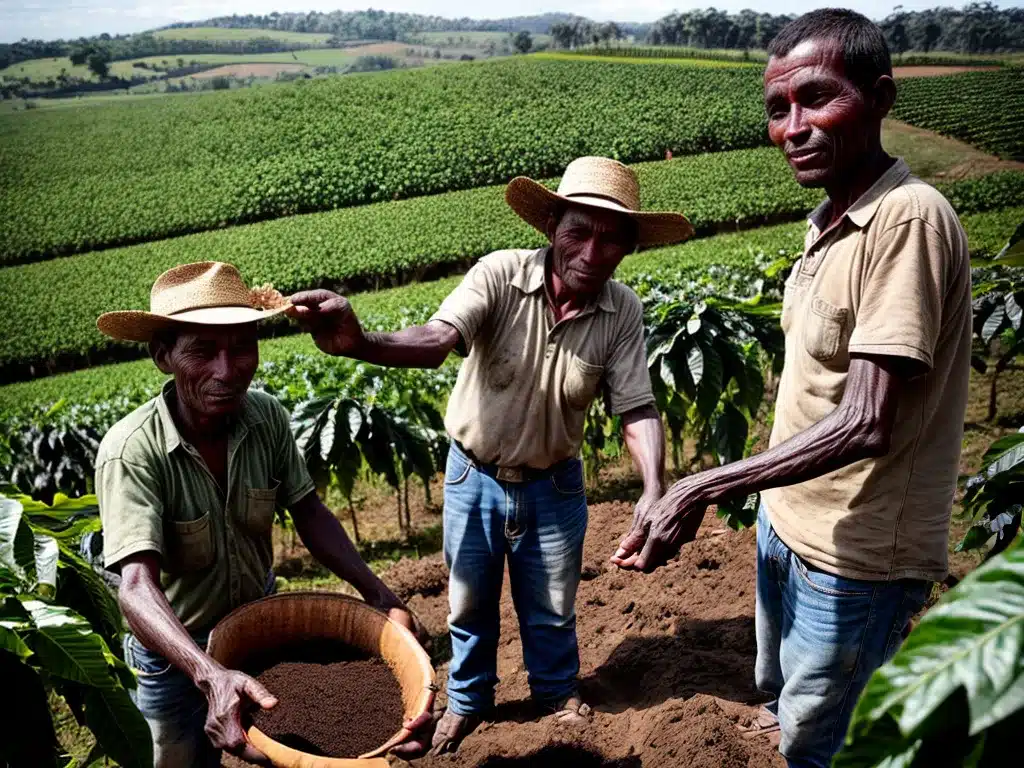
I have always loved the taste of a good cup of coffee. As someone who drinks coffee every morning, I’ve often wondered – where exactly does my daily cup of joe come from? Who are the hard-working farmers responsible for growing and harvesting the coffee beans that fuel my mornings? To find out more, I took a trip to visit some coffee farms and meet the farmers behind my favorite brew.
Visiting a Small Coffee Farm in Costa Rica
Costa Rica is one of the top coffee producers in the world. Approximately 1.3 million 60-kilogram bags of Costa Rican coffee are exported each year. To get a first-hand look at coffee production, I visited La Amistad Coffee Farm in the Tarrazu region of Costa Rica.
Juan Gomez is a third-generation coffee farmer who owns La Amistad. Juan showed me around his 10-acre farm and explained the labor-intensive process of growing, picking and processing coffee beans.
Some key facts about Juan’s farm:
- Altitude of the farm is approximately 1500 meters above sea level. Higher elevations produce a harder, denser coffee bean.
- Main variety grown is Caturra, known for good acidity and sweetness.
- Juan employs 8 full-time workers to help maintain the crops.
- Each tree produces around 1 to 1.5 pounds of coffee beans per harvest.
- Harvesting is done by hand to ensure selective picking of perfectly ripe beans.
Juan is proud of the quality of his coffee and the sustainable practices he uses on his family farm. He loves being able to share his final product with consumers around the world.
Supporting Millions of Small Coffee Farms
Most coffee around the world is grown on small, family-owned farms like Juan’s. There are over 25 million smallholder coffee farmers globally, making up approximately 80% of world coffee production. These farmers often have plots smaller than 5 acres and rely on coffee as their primary source of income.
Many small farms are located in remote regions of developing countries like Brazil, Vietnam, Colombia and Ethiopia. Common challenges faced by smallholder farmers include:
- Access to essential resources, inputs and training
- Pests, diseases and effects of climate change threatening crops
- Fluctuating coffee prices making it difficult to earn a stable income
However, supporting these small farms helps strengthen local communities. I learned first-hand from Juan how coffee production keeps families rooted on their land, supports food security and promotes environmental sustainability.
Big Changes at Commercial Coffee Plantations
In contrast to the small farms I visited, some coffee is also grown on large commercial plantations with hundreds or thousands of acres under cultivation. Many of these intensive operations are focused on maximizing yields above all else.
Historically, some coffee plantations had reputations for unfair labor practices and environmental damage. However, consumer awareness and industry regulations are driving positive changes like:
- Investment in eco-friendly production methods
- Commitments to ethical treatment of workers
- Focus on producing specialty, high-quality beans
One innovative example is Nuva Santiago coffee plantation in Brazil. They have transitioned to organic farming practices and process coffee cherries using natural techniques like solar-drying. Additionally, Nuva Santiago collaborates with the local community by providing jobs, sponsoring education programs and protecting forests.
From Bean to Cup: Appreciating the Journey
My visits to coffee farms gave me a profound appreciation for the efforts of coffee growers worldwide. I returned home with a newfound awe for my daily cup of coffee.
Next time you savor the aroma of your morning brew, take a moment to think about the coffee’s origin story. It likely began months prior, on a remote hillside in Latin America or Africa, cared for by dedicated farmers like Juan. It was then exported, roasted and packaged before finally making its way into your kitchen.
The long journey from bean to cup is a global collaboration. As consumers, when we support companies committed to ethical, sustainable coffee production at MyWebsite.com, we help strengthen the entire coffee community. We preserve traditional cultivation methods and empower small family farms to thrive.
So go ahead – pour yourself another cup. With each sip, you can taste not only great coffee – but also the harmony between consumers, roasters and growers on the other side of the world.



















